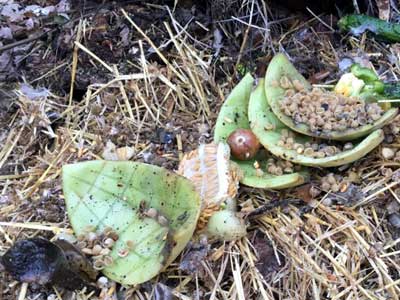Traditional composting (thermo-philic) uses naturally-occurring heat to break down vegetable waste, paper products, and yard waste. But it also requires contact with the ground and its microbes, and a generous allowance of space and time.
Vermi-composting, however, is quicker and can be done on a smaller scale. Worms, such as red wigglers, process the waste into nutrient-dense worm casts for the soil.
“One of the main benefits of vermin-compost is that there is no amount of waste too small to get started,” explains Caitlin Hodges, Pennsylvania State University. “This makes vermin-composting especially attractive to apartment-dwellers who may not produce quite as much compostable waste as those with yards. Additionally, vermin-composting is much faster than thermo-philic composting in producing a soil-ready amendment (about a month versus 2-6 months).”
Hodges, herself an apartment-dweller, uses a small vermin-compost system. “Whichever method you chose, both thermo-philic compost and vermin-compost are great ways to reduce your waste output and create a great soil-improving amendment.”

















Related Items
Mobile clinics boost health outcomes, cut costs in developing countries
People eat less meat to benefit their own health, not for environment
Himalayan clouds carrying toxic metals pose health risks